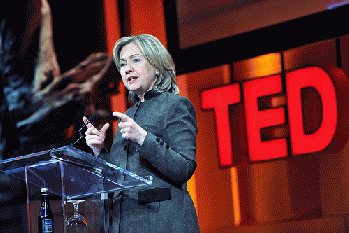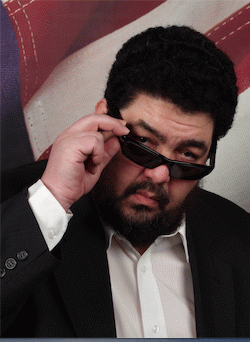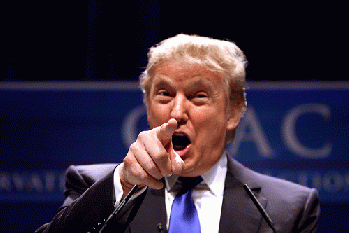| Back OpEd News | |||||||
|
Original Content at https://www.opednews.com/articles/Cyber-Security-Expert-Weig-by-Joan-Brunwasser-2016-Election-Hack_2016-Elections_Anonymous_Anonymous-Sources-170122-549.html (Note: You can view every article as one long page if you sign up as an Advocate Member, or higher). |
|||||||
January 22, 2017
Cyber-Security Expert Weighs in on Recount, Anonymous Threats and More
By Joan Brunwasser
Keep in mind that the governor of Wisconsin in 2011 was of a different party. That means, again separate from politics, that... WI is, essentially, a completely different "company" than it was back in 2011. Was charging that much a nasty thing to do? Yeah, probably. I think it's the job of government to do everything in its power to assure the correctness of elections. That's a far better use of our tax dollars...
::::::::
My guest today is David Gewirtz, computer scientist and one of our foremost cyber-security experts. He is also the author of Where Have All the Emails Gone?.
Joan Brunwasser: Welcome back to OpEdNews, David. We last spoke in 2009, when we discussed the millions of missing emails during the George W. Bush administration. I'd like to take your expertise and apply it to the goings on during the election cycle of 2016. How would you like to get us started?
David Gerwirtz: Well, it's sure been an unusual year, hasn't it? For me, personally, it's a reminder that past isn't always prologue. I've been prognosticating and pontificating on presidential elections since the days of Poppy Bush, and there has always been a sense of inevitability, as if the election was a dance between partners whose steps you could predict.
That wasn't the case in 2016. While it was possible to predict the outcome for Secretary Clinton (and, as you know, I did -- more than 15 months before the election), the phenomenon that became the election of Donald Trump was completely outside of what us pundits might have expected.
Don't get me wrong. The unhappiness and unrest of our displaced workers were deeply apparent, as is the widening of the divide between the super-wealthy and the rest of the population. But as more and more tabloid-level news came out about Mr. Trump's statements and actions, most pundits were convinced he wouldn't survive the cycle.
Instead, Americans, in states where it counted, discounted those statements and voted to roll the dice to knock the country out of the patterns and doctrines that both parties have promoted over the last four administrations.
Sadly, I think the enduring result of 2016 is an almost universal level of battle fatigue. Everyone is emotionally charged on the election, there's a level of animosity that's not healthy, and, of course, given that Mr. Trump is a wild card, an almost historic degree of uncertainty.
But, hey, as I've said before, sometimes sitting behind the Resolute desk has a powerful impact and leaders we've discounted become great. We'll know more in a few years, won't we?

Former Secretary of State Clinton at the Ted Women Conference
(Image by U.S. Department of State) Details DMCA
JB: The recent recount efforts by Green Party presidential candidate Jill Stein were generally pooh-poohed by the corporate media. And the fact that "nothing changed" strengthened that view. What are your thoughts about the matter?
DG: Well, as you know, I wrote about this at some length. I did find it odd that Ms. Stein was the leader of this recount movement because no recount would have resulted in a positive result for her candidacy. That said, it's any citizen's right to push for an issue that he or she feels is important.
In the context of looking at the recount as a way to change the results of the election for those who were disappointed by Hillary Clinton's loss, I recall doing the math in my column showing how it was a statistical improbability that a recount would move the needle in Mrs. Clinton's favor. But I didn't view question of the validity of doing a recount as a partisan issue at all.
My view of the recount, or actually, any recount is that our election security must be paramount. While we've been generally fortunate in our elections, in that they've mostly been resilient when faced with outside efforts at corruption, there are flaws and weaknesses in any complex mechanism, our balloting process included.
The reason I supported a recount was because I believe America needs to demonstrate both to its citizens and, especially, to its allies and rivals, that we will be unyieldingly diligent in making sure the choice of our citizens is the choice of OUR citizens. Given the (frankly, very minimal threat) of outside agency hacking of voting machines, it's a best practice to take the extra effort and the expense to be sure the election results were not tampered with at any level.
JB: And what did you conclude about the way the recounts were run? Did they, in fact, demonstrate that our elections are free from any tampering, whatever the source?
DG: Because elections are run locally, it's nearly impossible to provide a truly definitive answer to that question. But it's reasonably clear that the results, beyond a reasonable doubt, were accurate. Some votes were picked up that slipped through the cracks, but they were of such a low volume as to not even contribute to a rounding error in terms of the end result.
As for how they were run, there's always something inspiring, encouraging, and humbling to watch how seriously some of our citizens take their civic responsibility.
JB: You wrote in your recent piece, Why a Recount is Important and Why Trump Should Support It: "The bottom line is simple: anywhere we use digital technology in our voting process, the results could be compromised. Therefore, we have to have a proven, practiced way of confirming the accuracy of the vote." Let's examine the first part of that statement. You say that "the results could be compromised." What do you mean by that?
DG: To answer that, I need to speak a bit more broadly about the nature of digital threats vs. physical threats. Without getting sidetracked about the illegalities or the current investigation into Russia, just consider the practical differences.
To do so, the best place to start is the Watergate break-in back in 1972. At that time, G. Gordon Liddy and the Committee for the Re-Election of the President (Nixon) decided that they wanted to perform an intelligence gathering operation against the DNC. To do so, they wanted to wiretap DNC headquarters. And to do that, they sent Virgilio Gonza'lez, Bernard Barker, James McCord, Eugenio Martnez, and Frank Sturgis to physically break and enter the Watergate complex where the DNC's headquarters was then located.
In 2016, tapping into communications between John Podesta and other DNC members involved some geeks sitting somewhere in a foreign country tapping on their computer keyboards. There was no need to travel across the world or put themselves at physical risk. In fact, there was probably no need for any of them to wear anything other than pajamas or sweatpants while sitting on a couch.
Digital attacks are so prevalent because, technically, nearly every data repository is connected to everyone else on the Internet. There are very few "air gaps," where computers exist off the grid. And since every machine is a few hundred milliseconds from every other machine, the challenge is no longer physical in any way.
Instead, every potential victim has to defend against every possible threat vector, where every attacker has to find just one mistake. This is an asymmetric challenge, because even with the best security, almost every computer user is not only dependent on the security software in use, but the underlying network architecture and, below that, the programming that runs all of it -- all often supplied by different vendors.
We now have best practices that can mitigate the threat of penetrations or find and limit them once inside a network, but given the complexity of the network, the ability for a well-funded adversary to find even one mistake in any organization's digital defense grid is almost guaranteed.
This is where most of the work needs to be done by technology companies, technology users, and our government. The fundamental architecture of the Internet allows and exacerbates these flaws, and until we pretty much redesign everything from the ground up for security, we're going to be at risk.
That said, there are many good practices that can reduce the risk, practices that many people ignore. For example, way too many of us use terrible passwords and avoid the use of multi-factor authentication. I'm guessing that Mr. Podesta did not use MFA on his Gmail account, because it would have been much, much harder for the Wikileak attackers to get in if they had to have an authentication device on hand to access his account.
For the record, multi-factor authentication on Gmail (or almost all other online services) isn't some special service restricted to government leaders. MFA is available to anyone using any of those services and if you don't set up Gmail, Facebook, and your other services with multi-factor security, your personal information remains at great risk.
JB: Okay. Let's now move from the personal and the business to the electronic election system we have in place. How secure is it? How worried should we be, not necessarily about foreign attacks, but by any attacks at all? After all, look at all the multi-million or -billion dollar decisions that get made based on who wins the Oval Office and/or controls Congress in any given election cycle.
DG: Because each region chooses and manages its own voting machines, it's not really easy to make a blanket declaration about security. I'll tell you one thing: if you keep hearing about leaks and breaches on systems operated by federal, state, and local governments on an absurdly regular basis, you can be pretty sure that an electronic election system is equally at risk.
JB: Back to the recount. Where we seem to differ is on how to confirm the accuracy of the vote and whether that happened. I feel like the two of us are looking at the proverbial elephant from totally different angles. What I read and heard about was that the price of the recounts was jacked up to an almost insurmountable level, seriously predicating against concerned citizens' right to know.
Wisconsin ran a statewide recount in 2011 at an estimated cost of $520,000, according to the state's website. This time, the state demanded $3.5 million. That could be viewed as extortionate, or at the very least, very strong discouragement. Also, in numerous cases, particularly in Wisconsin, where there were serious inconsistencies to be investigated, the election officials merely ran the same votes through the same machines again, rather than examining them by hand. What did that prove? The ballots were right there to be counted and yet that was not done. Why not? There were other issues as well, but let's start with those.
DG: Who was it that said all politics is local? In any case, I'm not any more knowledgeable on local election procedures than the next guy, so all I can offer is speculation based on my experience with human nature over the years.
I imagine that recounts can be incredibly complex. That's because you're talking about somehow coordinating all the local communities across a state. Have you ever been in a group of more than five people where everything went smoothly? Yeah, me neither. Imagine that for every town. I just Googled "how many towns are there in Wisconsin" and, as of 2006, there were 1,260. Coordinating all of that has to be crazy.
Now, add to it the politics of the thing, the fact that there is a cost, the general animosity this election has brought out, and the basic human desire to not do hard, tedious paperwork, and you can begin to speculate on the various forces of friction involved in impeding recounts.
As for how much money the state demanded, keep in mind that the governor of Wisconsin in 2011 was of a different party than the governor of Wisconsin is now. That means, again separate from politics, that the entire administrative operation is run by different people. Wisconsin is, essentially, a completely different "company" than it was back in 2011.
Was charging that much a nasty thing to do? Yeah, probably. Personally, I think it's the job of government to do everything in its power to assure the correctness of elections. That's a far better use of our tax dollars than a lot of the stuff the government wastes its our money on.
JB: Agreed. Today marks an event many never imagined would occur: the inauguration of Donald Trump. I understand that Anonymous has promised to leak damaging material about him going forward. They were not very active during the campaign. Why now? And how do you evaluate their threat?
DG: President Trump (it's after noon on January 20, as I write this, so it's President Trump) is a very polarizing figure. Anonymous has picked other polarizing figures as targets in the past, so it's certainly not something far afield of their actions.
My understanding is that Anonymous is organized around individuals and the causes that fire them up. As far as I know, there isn't one central command that dictates what Anonymous does or doesn't do -- it's the will of the collective (or at least the loud voices).
Perhaps now that the new president has been sworn in, it's more real than during the campaign. That said, it's important to mention that there are peaceful ways to protest, and for those people who feel the need to do so, it's always best to stay within the law. One of the things that does, in fact, make America great is that peaceful protest, even against the highest powers in the land, is something protected by our Constitution.
The United States is an amazing country. Personally, I have investigated, criticized, and mocked federal judges, senators, members of Congress, presidential candidates, members of the White House staff, and even sitting presidents. The worst punishment I've ever gotten was when I was asked to participate in a conference call so the person I was focusing my attention on could share his perspective with me.
Many of your readers live in countries where none of that would be possible. So while America does have its faults and flaws, we are allowed to speak truth to power without imprisonment or fatal consequences.
JB: I'm with you for the most part, David. Except that whistleblowers and journalists are often under attack, especially during the Obama Administration. And Trump has already gone after the media. But, I get what you're saying. Thanks for talking with me again. It's always a pleasure.
DG: Freedom of the press isn't important merely because it's a fundamental freedom we hold dear. It's important to understand that freedom of the press is one of the essential debugging tools we have for democracy. A democratic society, like most software (and, if you think about it, the entire concept of governance is, really, just software), evolves over time. As it evolves, it's natural that glitches are introduced into the system.
The software analogy actually works when you look at the public and the press as analogous to the users and beta testers for a software release. The folks writing the code may have the best of intentions (and yes, I know, politicians), but what looks good during coding almost never survives the encounter with millions of users.
This is most definitely the case with democracy. As politicians add (or remove) legislation and regulation, the complex interconnection of the code of our democracy sometimes breaks. But without the ability of the press and the citizenry to complain about it, fixes will rarely ever get made. Yes, there's an inherent push-back on the part of parties, leadership, special interests, and big money, but eventually we reach an equilibrium that's not perfect, but resilient enough to keep us all going.
And with that rather labored metaphor, I'd like to thank you once again for a really fascinating opportunity to discuss these issues.
JB: Thanks, David. Looking forward to another go-round sometime soon!
***
David's website
David's column at ZDNet
In addition to hosting the ZDNet Government and ZDNet DIY-IT blogs, CBS Interactive's Distinguished Lecturer David Gewirtz is an author, U.S. policy advisor and computer scientist. He is featured in The History Channel special The President's Book of Secrets, is one of America's foremost cyber-security experts, and is a top expert on saving and creating jobs. He is also director of the U.S. Strategic Perspective Institute as well as the founder of ZATZ Publishing. David is a member of FBI InfraGard, the Cyberwarfare Advisor for the International Association for Counterterrorism & Security Professionals, a columnist for The Journal of Counterterrorism and Homeland Security, and has been a regular CNN contributor, and a guest commentator for the Nieman Watchdog of the Nieman Foundation for Journalism at Harvard University. He is the author of Where Have All the Emails Gone?, the definitive study of email in the White House, as well as How To Save Jobs and The Flexible Enterprise, the classic book that served as a foundation for today's agile business movement.
***
Some of David's election-related articles: "I wrote quite a bit prior to the election including a prediction that Mrs. Clinton was going to fail as much as 15 months before the election."
Email may not be Hillary's undoing, but it may be the straw that breaks her campaign's back8.19.2015
Investigating Hillary Clinton: Which secretaries of state violated the Federal Records Act?6.9.2016
Why a Recount is Important and Why Trump Should Support It 11.28.2016
***
My previous three-part series with David Gewirtz:
Exclusive Interview with David Gewirtz, Author of Where Have All The Emails Gone?
3.29.2009
Part two of Interview with David Gewirtz, Author of Where Have All The Emails Gone? 3.31.2009
Part Three of Interview with David Gewirtz, Author of "Where Have All The Emails Gone?" 4.2.2009
Authors Website: http://www.opednews.com/author/author79.html
Authors Bio:
Joan Brunwasser is a co-founder of Citizens for Election Reform (CER) which since 2005 existed for the sole purpose of raising the public awareness of the critical need for election reform. Our goal: to restore fair, accurate, transparent, secure elections where votes are cast in private and counted in public. Because the problems with electronic (computerized) voting systems include a lack of transparency and the ability to accurately check and authenticate the vote cast, these systems can alter election results and therefore are simply antithetical to democratic principles and functioning.
Since the pivotal 2004 Presidential election, Joan has come to see the connection between a broken election system, a dysfunctional, corporate media and a total lack of campaign finance reform. This has led her to enlarge the parameters of her writing to include interviews with whistle-blowers and articulate others who give a view quite different from that presented by the mainstream media. She also turns the spotlight on activists and ordinary folks who are striving to make a difference, to clean up and improve their corner of the world. By focusing on these intrepid individuals, she gives hope and inspiration to those who might otherwise be turned off and alienated. She also interviews people in the arts in all their variations - authors, journalists, filmmakers, actors, playwrights, and artists. Why? The bottom line: without art and inspiration, we lose one of the best parts of ourselves. And we're all in this together. If Joan can keep even one of her fellow citizens going another day, she considers her job well done.
When Joan hit one million page views, OEN Managing Editor, Meryl Ann Butler interviewed her, turning interviewer briefly into interviewee. Read the interview here.
While the news is often quite depressing, Joan nevertheless strives to maintain her mantra: "Grab life now in an exuberant embrace!"
Joan has been Election Integrity Editor for OpEdNews since December, 2005. Her articles also appear at Huffington Post, RepublicMedia.TV and Scoop.co.nz.



